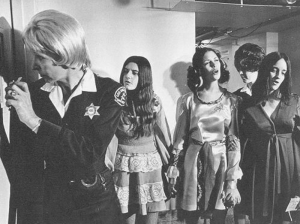
Netflix is now running a series called “Thirteen Reasons Why,” which details a girl’s suicide. Parents are understandably concerned that the series glamorizes suicide, and counselors are worried that it may incite copycat behavior.
On the other side of the Big Pond, however, Europeans are dealing with something that may be more sinister. It’s called the “Blue Whale Challenge,” and reports about it make “Thirteen Reasons” look like an After-School Special. Here’s how it works:
Moreover, reports say that over 100 teens have killed themselves through this game. That’s frightening.
One teenage girl described her experience:
‘It was middle of a night, my alarm rang, I woke up and got straight to my phone.
‘I had to watch videos with pictures flicking every two seconds of teenagers jumping off roofs, close ups of bodies, bloodied mouths, pools of blood under bodies.
‘It was accompanied by very unpleasant, haunting music with screams of animals and pets, and cries like children were being tortured.
‘I felt so awful after watching them I wanted to do something physical to either myself or somebody, to kill, to destroy.’
If that’s not disturbing enough, consider the words of the creator, a 21-year-old Russian named Philipp Budeikin, who is being held in a Russian jail for inciting at least 16 girls to kill themselves. He has confessed, but maintains that through his game he was ‘cleansing society’ of ‘biological waste:’
‘There are people – and there is biological waste. Those who do not represent any value for society. Who cause or will cause only harm to society.
‘I was cleaning our society of such people. It started in 2013 when I created F57 [online] community. I’d been thinking through this idea for 5 years. It was necessary to distinguish normal [people] from biological rubbish.’
He also claims that the teens were ‘dying happy.’ “I was giving them what they didn’t have in real life: warmth, understanding, connections.”

There are those who are skeptical of the impact of Blue Whale. In March a tech website called it “fake news.” Snopes.com declares the suicide reports are “unproven.”
Yet Budeikin sits in prison awaiting trial under some serious charges, and they’re not based on sharing “fake news.” Moreover, Wired UK has issued warnings about Blue Whale. Bloomberg has written about it, noting that the challenge has even impacted Brazil, a nation ranked high on the Gallup Happiness Poll. Even Anonymous, the computer hacker group, is taking the game seriously.
I’m not a gamer, a web expert, or a computer guru — not by any stretch. But I know that disenfranchised people can be driven to commit some pretty hideous deeds.
Like these folks.

And some of us are old enough to remember the Jonestown Massacre, when cult leader Jim Jones led hundreds to take their lives.
No one quite knows the extent of the harm done by the Blue Whale game. There may be far less than the 100+ victims claimed. There may be many more. The lesson, however, is this: the internet is a double-edged sword, both exhilarating and frightening. Caveat emptor — buyer beware.
Leave a Reply